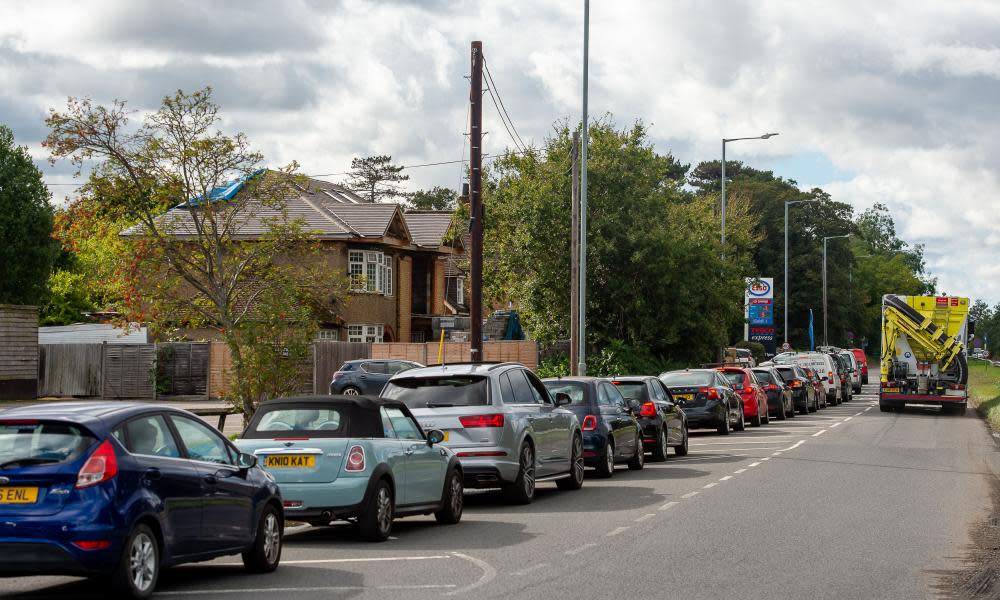The Guardian view on fuel shortages: this crisis needs management

Queues at the petrol pumps are never a good look for a government. They are especially bad in a pandemic, when so many people already have reason to feel anxious. Coming on top of gas price rises that have led to around 2m households losing their energy supplier, and following empty shelves in supermarkets, it is perhaps not surprising that some motorists have been grabbing all they can – even filling up plastic water bottles with petrol. There is a palpable sense that Britain is careering from one crisis to another.
In a belated attempt to calm a nervous nation on Tuesday, Grant Shapps, the transport secretary, said there were “tentative signs of stabilisation”. This assertion was backed up by petrol retailers. The hope is that the situation will gradually return to normal after the tailbacks and garage closures of recent days. But the public response to the shortages shows that confidence is shaky.
Boris Johnson has recently been bereaved. But his colleagues should be capable of governing without him if necessary. Instead, they stood by while the situation got out of hand. Home carers and others who rely on motor transport for work have in some cases been unable to fill up, with knock-on effects including vulnerable people kept waiting and appointments cancelled. With pressures on the health service already acute, these problems should have been anticipated and avoided.
There is huge goodwill towards key workers in Britain. If Mr Johnson or another senior minister had explained the adverse effects of panic buying, while providing information and reassurance about measures being taken, chaos might have been prevented. But increasingly, a government that claimed to want more control over Britain’s destiny appears to be running away from its most basic responsibilities.
Clearly, it does not know how to solve the problems that it helped create. Brexit is a major reason for the HGV driver shortages that are causing so much trouble. But ministers ignored repeated warnings from the haulage industry, presumably in the belief that the prime minister’s “something will turn up” attitude meant that something would indeed turn up. Now that it hasn’t, they are shamefully unprepared, hastily offering 5,000 three-month visas that haulage companies and unions believe most European drivers will simply reject. As one driver told a journalist: “Why would you want to go to Britain, jump all these hoops, face all this hostile environment, if you could go to Ireland or Holland and earn more, be respected, drive on nicer motorways with nice truck stops, and be a free European citizen, not a second-class citizen?”
It remains to be seen whether poultry workers also think they have better options than the 5,500 special visas that the government has offered them, in the hope of avoiding turkey shortages. The whole thing has the flavour of a farce. But while mocking the Tories’ failures may provide momentary amusement to their opponents, this policy and planning void is deadly serious. People were told that a “get Brexit done” government would boost the NHS and create new opportunities for British workers. Predictably, this isn’t how things have turned out. Covid has laid the country low. Ministers are pressing ahead with a cruel plan to cut benefits. And the combination of ministerial incompetence and gaps in the workforce are making it harder and harder to see how we will get back on our feet.

 Yahoo News
Yahoo News 
